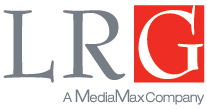How do you decide what to do at work each day?
There’s handling your explicit job responsibilities, of course. But you could also spend a little time reading up on the latest developments in your industry, or researching competitors, or helping out a colleague, or setting up a new tracking system for yourself so you don’t miss deadlines.
It can be easy to forget, but there are an infinite number of things you can choose to do each day to contribute to your organization, some more useful than others.
This also applies to all the ways you can prioritize and manage your work. While the work itself always feels like the priority, how you work matters too—after all, if you can make a couple of changes to your work routine that make you more efficient (and hopefully less stressed) in general, these benefits will extend to all the work you ever do. Below are three of the tips that have helped me the most.
Focus on doing just one or two important tasks each day
Each evening, take 30 seconds to write down just one or two of the most important tasks to handle the next day (try starting with just one). Maybe your first item is wrapping up an important article (since that’s due at noon), and the second is following up with a prospect.
Once you’re at work, try keeping the list open on screen or posting it on the edge of your monitor—just be sure it stays somewhere within your immediate field of view. Ideally you can complete those priority tasks before you move on to other work... but of course, that’s probably never going to happen.
Even if you plan to work only on one thing, even if your schedule seems pretty clear, you’re almost certainly going get interrupted. A lot. Every single day, and many times a day.
You get a frantic phone call from a client who needs something done at the last minute, or your colleagues ask you to help finish a presentation, or maybe the company mascot/friendly neighborhood cat walks in from the street... Interruptions are unavoidable, which makes it all the more important to use your remaining time effectively.
Once you’ve handled the distraction, look back to your list to bring your focus back to your priority, instead of some miscellaneous task. (This is why it helps to make the list as prominent as possible, so you can’t help but notice it—post it over your phone screen if you need to.) And when you can finally cross off the task, you’ll feel great because you actually got something important done.
Check email only a couple of times a day
While you likely use email daily, it probably isn’t your only, or most primary, responsibility. Of course, you still need to check your messages and respond to people. But stopping an important project every time an email comes pretty much guarantees the project will never get done.
Worse yet, the mental drain of switching between email and other tasks makes you less productive at everything, effectively reducing your IQ by up to 10 points.
The good news is that you can mitigate the effects of email overload. Try blocking out set times each day just for reading and responding to email—e.g., first thing in the morning, after lunch, and at the end of the day—and then adjust as needed. Since I began doing this, I’ve been getting through individual messages much more quickly than before.
Take mini-breaks throughout the day
Your body and brain will thank you for it. In one recent study, people who traded two minutes of sitting for walking each hour lowered their risk of premature death by 33%. “But Luke, I love doing my work so much—I’m already misty-eyed at the thought of pulling myself away, even for two minutes,” you say. “That, and I’m paid to work, not take breaks.” Well, what if it taking breaks helped you get more work done?
As it turns out, research suggests that taking breaks throughout the day recharges your mind, making you more productive and creative. Of course, if you’re happily chugging along and feeling focused, then go with it. But once you feel fatigue setting in, take a couple of minutes to get up and walk around—staring at the screen listlessly isn’t doing you or your company any good.



